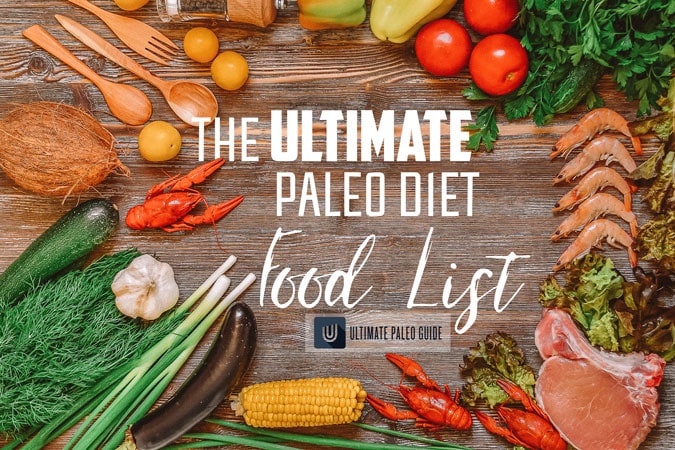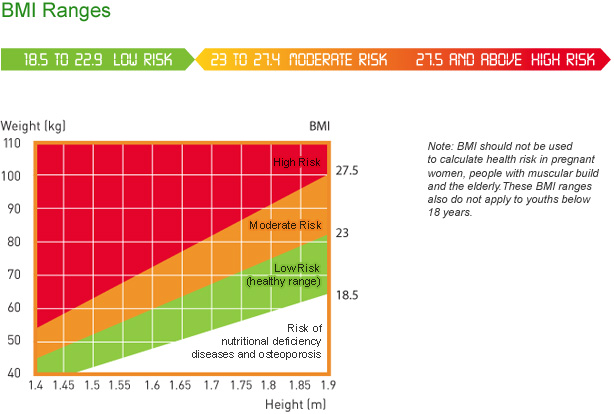
Health and Lifestyles is a representative survey of the British population. It aims to determine the health status and lifestyles of the population. The survey was conducted between May and June 2009, and its findings are widely reported. These data are used in order to determine the best health-care programs. About half of the population over 40 participated in the study. Participation in Health and Lifestyles has many benefits.
It is the first large-scale study of British health and lifestyles. The findings of the survey examine the factors that affect a person's lifestyle, including physical fitness, psychological status, life circumstances, and health-related behaviour. This study examines the social and psychological contexts of individuals and helps to identify patterns in health-related behaviour. It provides valuable insights into factors that impact health and lifestyles. This study also provides valuable insights into the causes of common diseases and how they can be prevented.

Researchers in health and lifestyles face two main problems. First, the ability to measure community health behavior. The second is that the analytical methods used are not up to date with theoretical developments. Some studies use cluster analysis or factor analysis. However, they fail to test causal hypothesises. However, they are more comprehensive than most studies. Politicians will be able to improve policies and promote healthy living by having a deeper understanding of how lifestyles and health interact.
Research in health and lifestyles examines the differences among groups. The study revealed that children in the "safety-problems" class had lower behavior scores, than children who were categorized in the more stablely positive class. A hypothetical child in the "safety issues" class was at or above the sample mean on all outcomes. The results showed that people from lower social class and higher social status lived healthier lifestyles than those in the rest of society.
Multiple studies have shown that the correlation between a healthy lifestyle with psychosomatic symptoms differs by gender and country. The severity of symptoms is lower for those who are healthier. For example, boys in Ireland and Greece showed greater reductions in their symptoms when they lived a healthy lifestyle. These findings are important for determining how to improve the quality of life of children and adolescents. The study also shows the importance maintaining a healthy lifestyle through exercise and nutrition.

The relationship between psychosomatic symptoms and a healthy lifestyle is complex. It is different for each country and for each sexe. The score for a healthy lifestyle is generally higher than the symptoms. A healthy lifestyle is associated with fewer psychosomatic symptoms in boys who live in countries that have a healthier lifestyle. And, it varies across the globe. This study shows how important physical activity is for long-term health and well-being.
FAQ
Does weightlifting burn more fat than other forms of exercise?
You can lose more fat by weight lifting, but only when you do it in conjunction with cardio.
You should do weightlifting after your cardio workouts to maximize its benefits.
If done correctly, weightlifting can increase your heart rate and oxygen intake which in turn helps you lose weight.
If you don't mix it with cardio, your body won't notice significant changes.
What kind of food should I avoid when trying to lose weight?
Trans fats should be avoided. Trans fats can raise LDL (the unhealthy) cholesterol levels while lowering HDL levels (the good).
Trans fats can be found in fast food, deep-fried foods, packaged baked goods, snack cake, and other processed foods.
These unhealthy fats cause inflammation which leads to heart disease, diabetes, and other health problems.
Foods containing artificial sweeteners should also be avoided. Artificial sweeteners increase the risk of getting cancer.
These chemicals can be found in soft drinks, chewing gum, and candy bars. These chemicals are also found in meat, poultry, eggs, and other foods.
Artificial sweeteners include saccharin, cyclamate, sorbitol, aspartame, acesulfame-K, and sucralose.
The American Heart Association recommends that these chemicals be avoided as they can damage DNA.
How many calories should you consume each day?
This will vary from person-to-person. The average is 2000 - 2500 calories per day. It's important to assess your life style, gender, age and height in order to determine how much calories you need.
What is a good exercise routine?
Regular exercise is essential to staying fit. No matter what kind of exercise you do, as long you do it consistently. Consistency is the key. For you to get results, you have to stick with it for a longer period of time.
Begin small daily activities like walking. Then gradually increase the time spent exercising until you spend 30 minutes a day working out. This could be running, biking, swimming or weight training.
Try to make sure you exercise on all days of the week. Don't miss any sessions unless you have an excuse.
When exercising outside, make sure you have the right clothing and shoes. You should also consider the weather conditions that could affect your ability exercise safely.
Make sure that you drink plenty of water while you're exercising. It is best to avoid alcohol while you're exercising. Caffeinated beverages such as tea, coffee, and cola should be avoided. They may give you energy, but they will also dehydrate you.
When you first start exercising, you might feel tired after completing your workouts. You'll feel more energetic and refreshed if you keep going with your exercise program.
Do I need to exercise every morning?
No! Get at least 30 minutes of moderate-intensity physical activity 5 days a week. It means you need to exercise hard enough or walk fast enough that you are slightly out-of- breath.
Statistics
- Candidates and applicants must pass all four tests at 70% (minimum level) to graduate from Basic Deputy U.S. Marshal (BDUSM) Training. (usmarshals.gov)
- By John Thompson Take a whopping 38% off a set of PowerBlock Pros. (menshealth.com)
- An estimated calorie range for moderately active adult males falls between 2,200 to 2,800 calories per day, depending on age. (eatright.org)
- According to the American Academy of Dermatology (AAD), men over 50 are at a heightened risk of developing it. (healthline.com)
- Are You One of the 20% of Guys (mh.co.za)
External Links
How To
How can I exercise to burn fat?
Exercise can help you burn calories and increase your metabolism.
Exercise at a moderate intensity to safely lose weight.
These tips will help you burn fat and keep fit while exercising.
-
Cardio exercises include walking, running, swimming, cycling, running and jogging.
-
You can exercise for 30 mins three times per week.
-
Strength training is a great way to lose weight.
-
Avoid doing intense exercises. It's possible to build muscle, but not lose it.
-
Drink plenty of water during exercise. Water helps flush out toxins and keep your body properly hydrated.
-
After exercising, consume low-fat protein smoothies. Protein shakes boost energy and repair muscle tissue.
-
Smaller meals are better for you.
-
Don't skip breakfast! Skipping breakfast can leave you feeling tired and sluggish.
-
Take care of yourself mentally. Stressful situations can slow metabolism.
-
Keep a positive attitude. Studies show that overweight people are more likely to be obese than those who perceive themselves as attractive.
-
Get enough sleep. Insufficient sleep can make it more difficult to lose weight.
-
Always be active. Be sure to get up and move around every hour or two.
-
Maintain a healthy diet. Eat right to feel satisfied and full for longer.
-
Find relaxation techniques. Your body won't release stress hormones that cause muscle tissue destruction if you have a tense mind.
A balanced diet includes all essential nutrients needed for growth and development.
Consider eating six small meals daily instead of three big ones. This gives your body the time it needs to process what you've eat.
You need about 500 milligrams of calcium daily to maintain strong bones. Calcium is available in dairy products like milk, yogurt, fortified soy beverages, orange juice, cereal, bread, and cereals.
Calcium is found in leafy green vegetables and beans, tofu as well as nuts, seeds, cheese, and seeds.
Vitamin D is required by the body to absorb calcium. Vitamin D is found in eggs yolk, fatty fish and fortified foods.
Vitamin E is important for skin health. Vitamin E can also be found in vegetable oil, wheat germ oils, peanuts as well almonds, sunflower seeds and corn.
Your body needs zinc to maintain normal immune function and heal wounds. Zinc can be found in seafood, legumes and meats.
Zinc deficiencies can lead to fatigue, decreased appetite, depression, and reduced immunity.
Eating too much sugar causes insulin resistance, which increases blood glucose levels. Insulin resistance is linked to weight gain.
When there is a high level of free radicals, insulin resistance can develop. Free radicals are molecules that have unpaired electrons, which can cause damage to cell membranes or other parts of your body.
The main sources of free radicals are food additives.
Free radicals can lead to cancer and heart disease, diabetes mellitus, arthritis, asthma, and premature aging.
A well-balanced diet rich in antioxidants is the best way for you to avoid free radical damage. Antioxidants protect against oxidative damage.
Vitamin C is found in citrus fruits and beta carotene is found in carrots.
Additional antioxidant nutrients include selenium and copper, manganese and zinc.
Selenium helps protect cells from oxidative damage caused by free radicals. Selenium can also be found in Brazil nuts (tuna), liver, kidneys and shrimp.
Copper protects the brain and eyes as well as the lungs and red blood cells. Copper is also found in poultry, meat, and organs.
Manganese, an essential component of bone strength, is crucial. Manganese can be found in brown rice and spinach as well as bananas, prunes raisins, oatmeal, lentils, and oatmeal.
Zinc is necessary for average growth, reproduction, and wound healing. Zn is present in lean cuts of meat and white fish, as well as eggs.